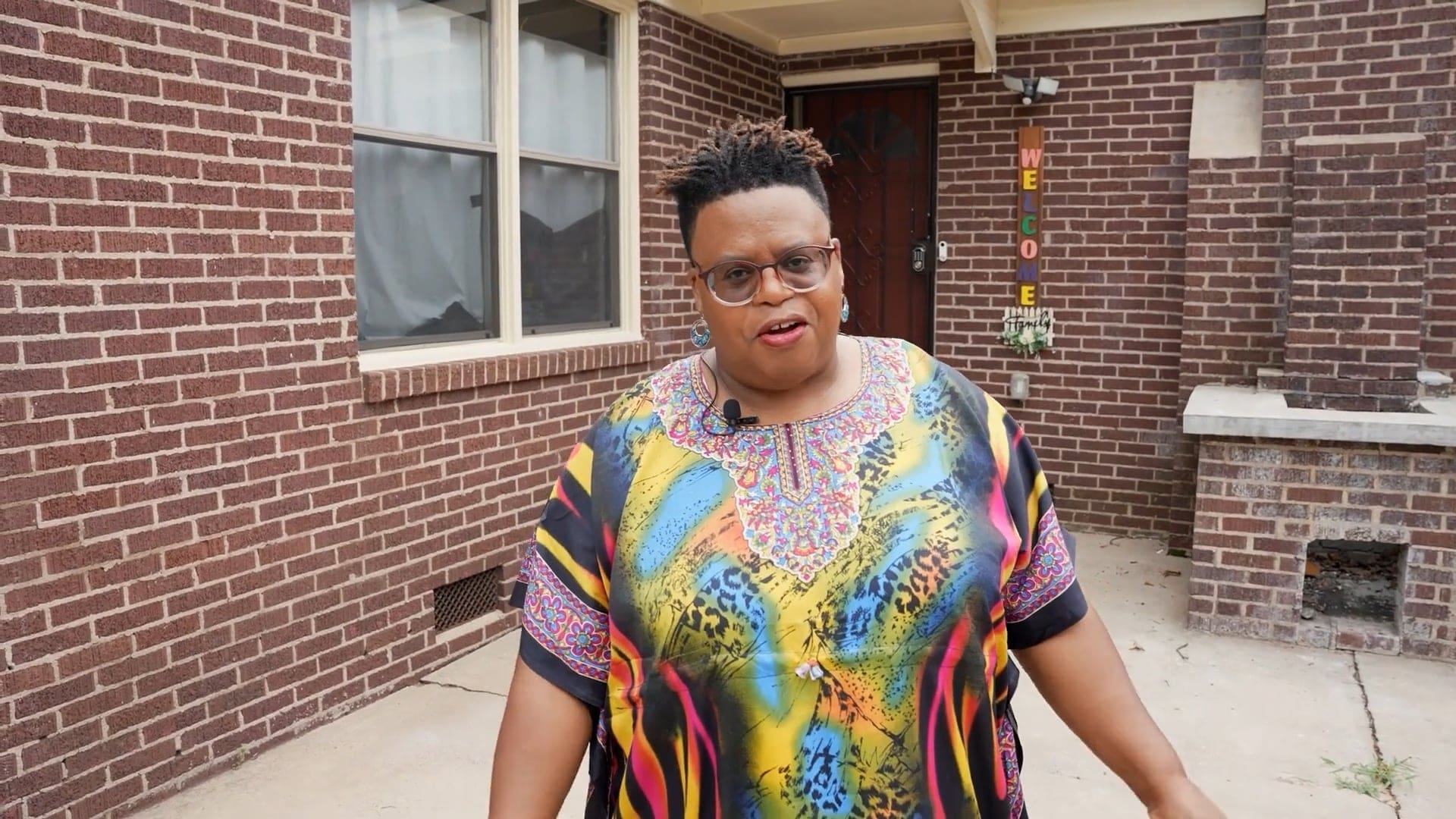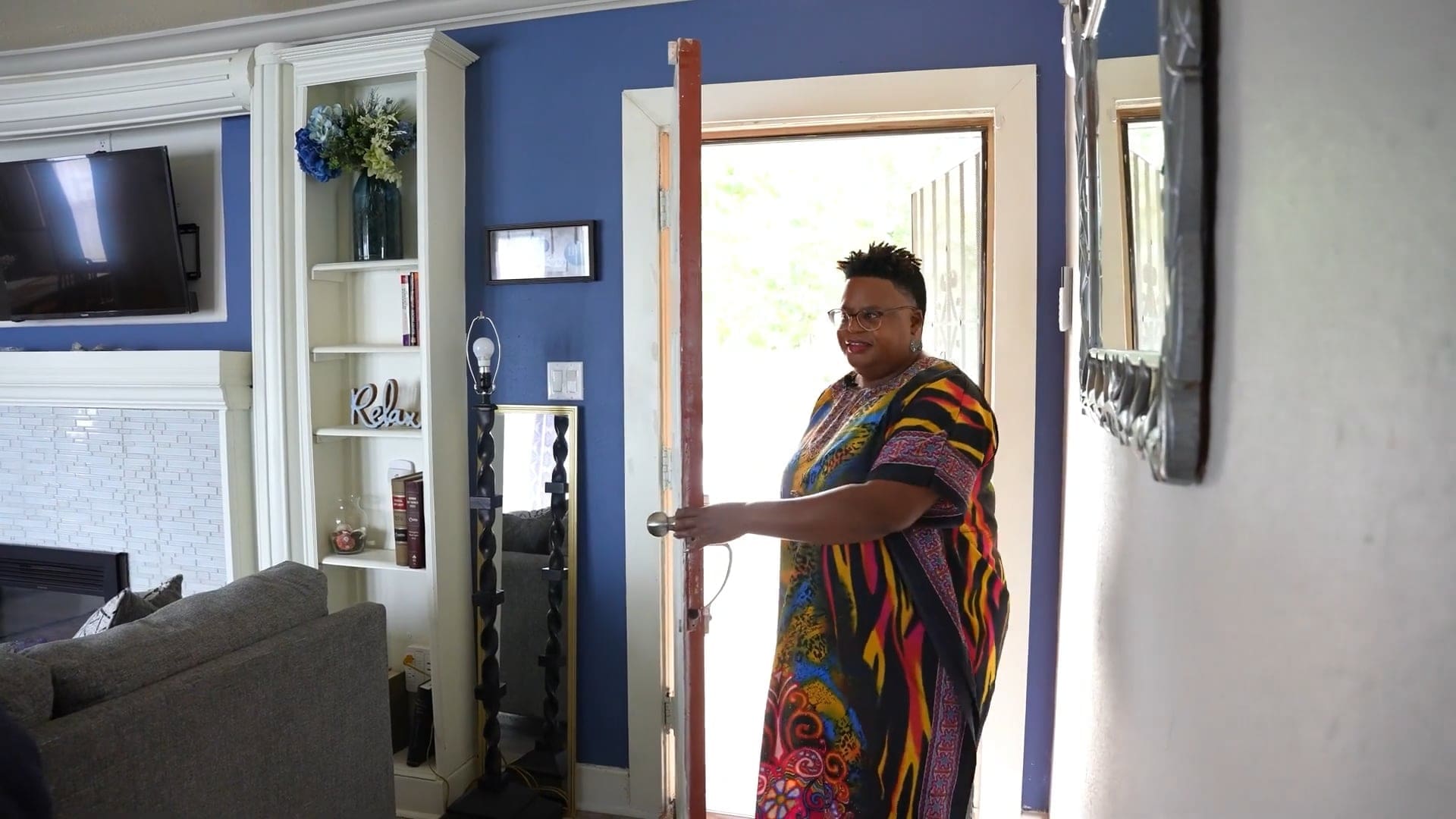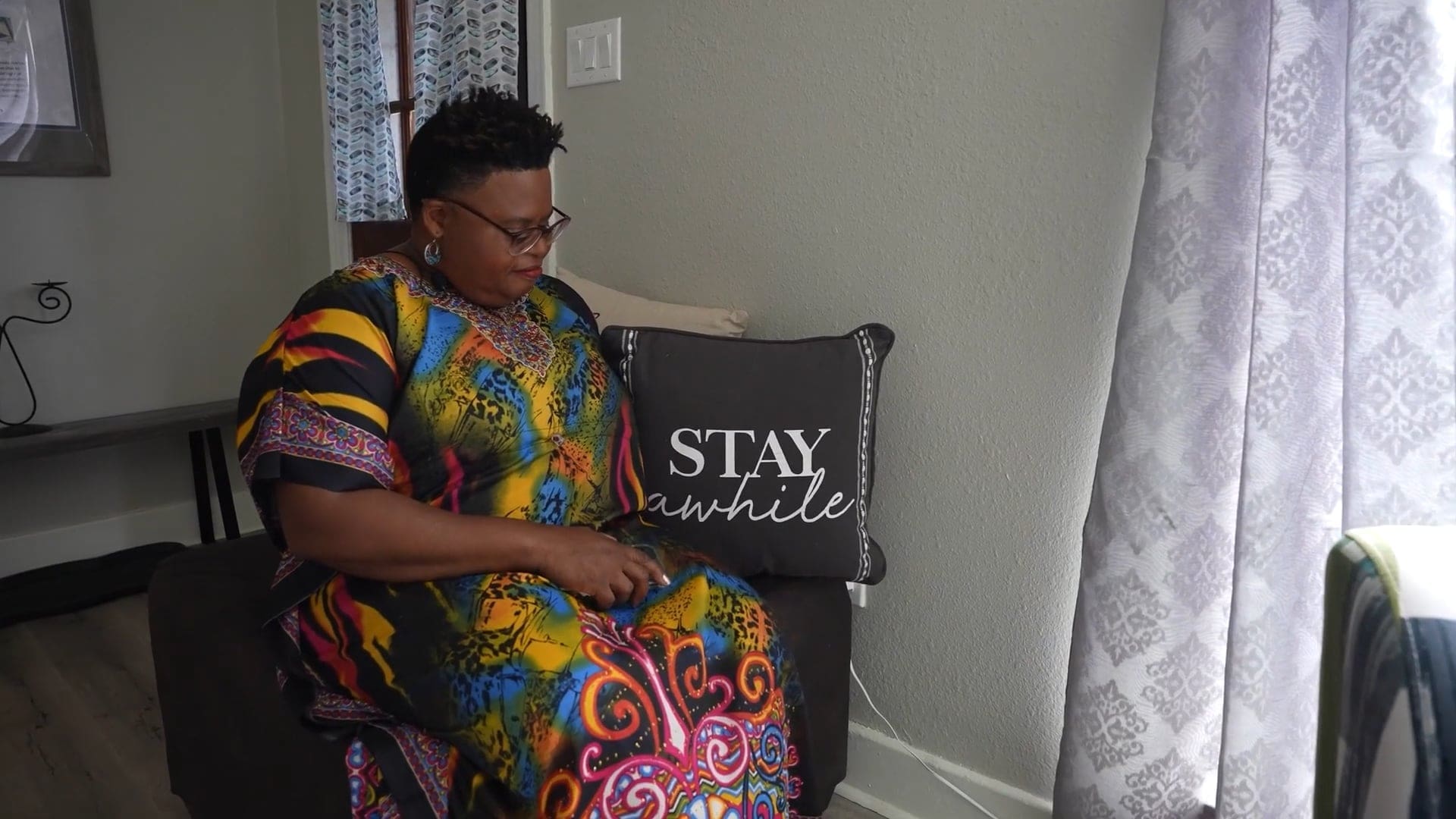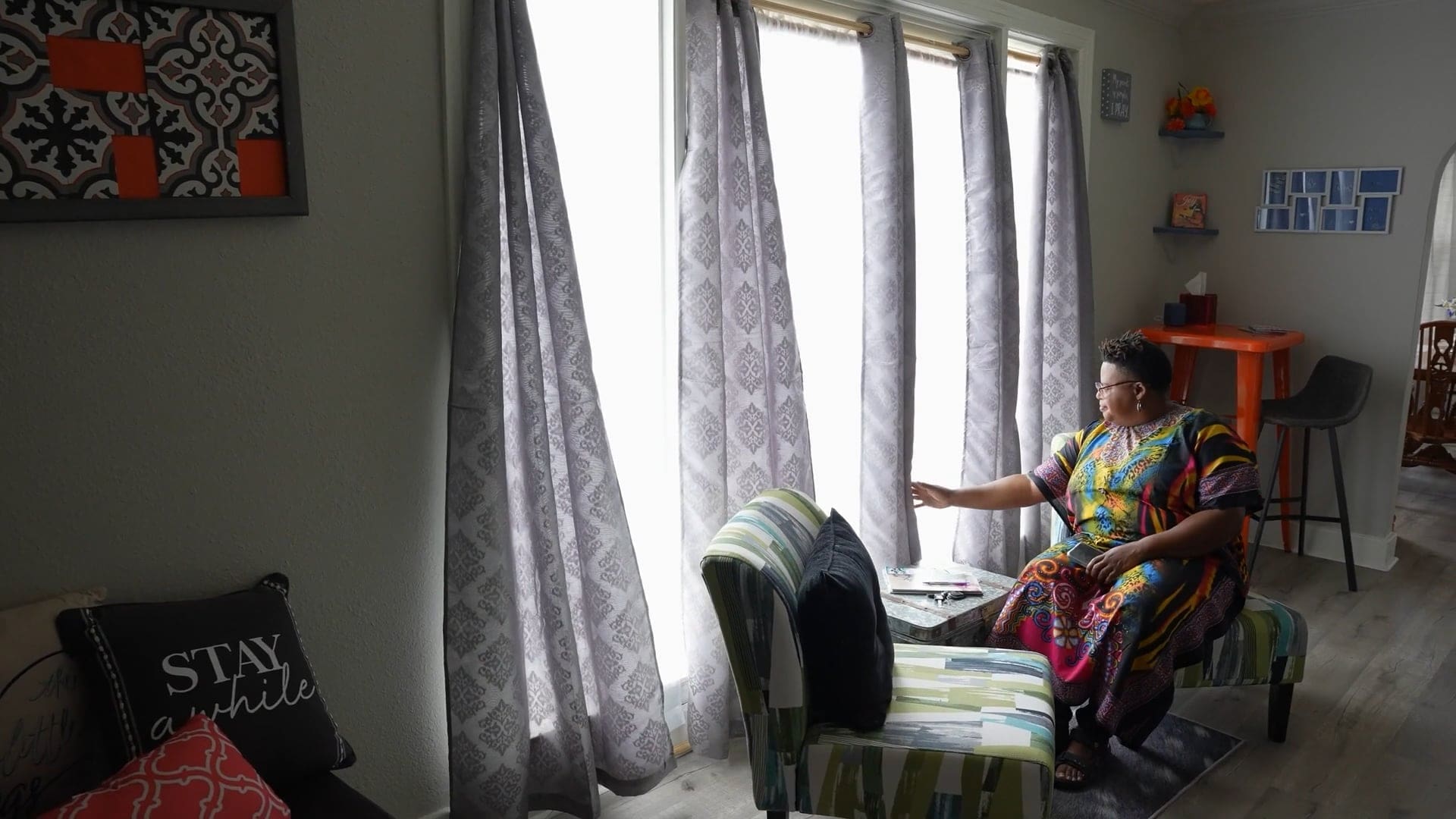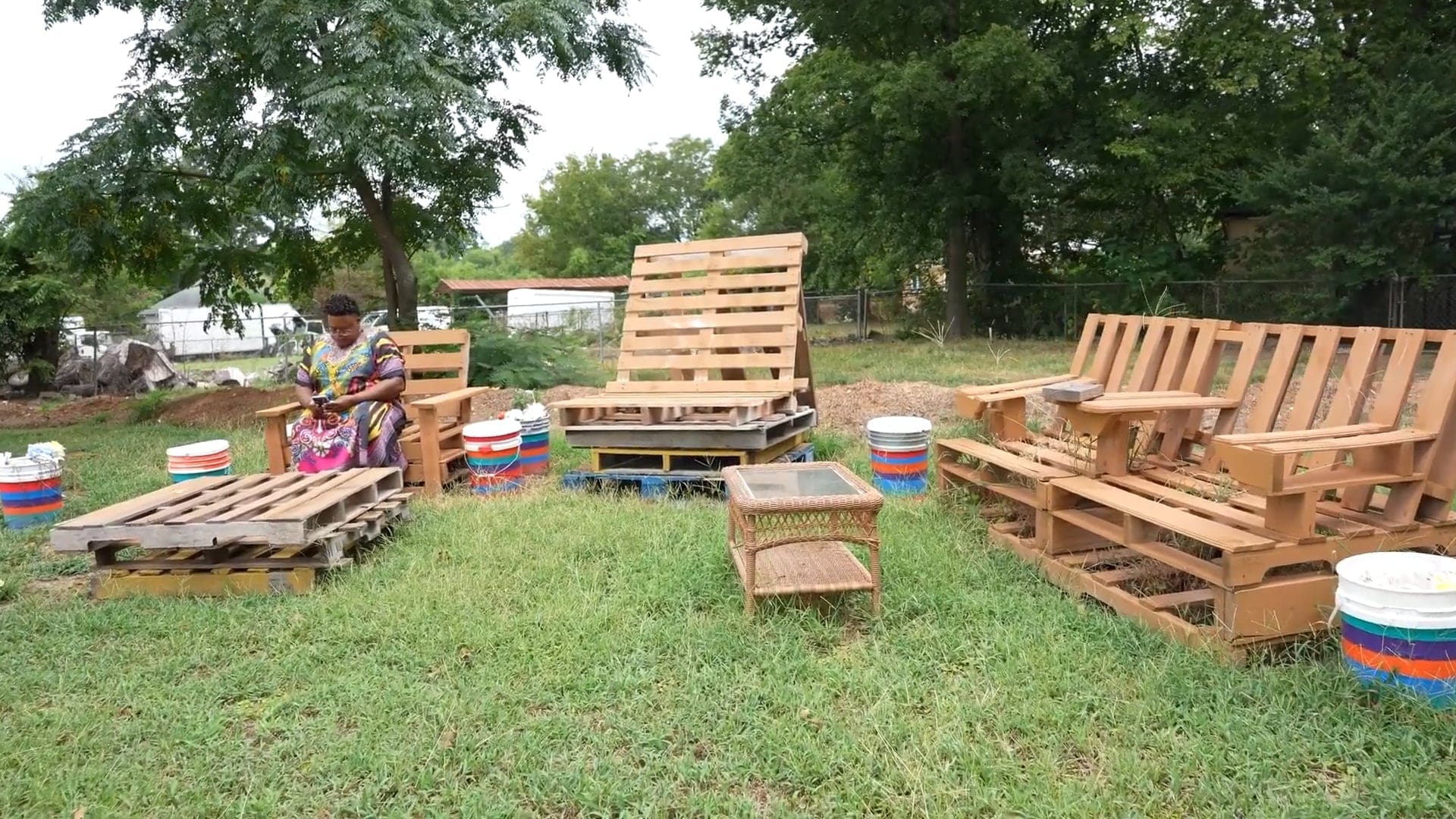In England, Arkansas — a small rural town with a population of just 2,800 — housing is more than just a place to live. It’s a foundation for stability, dignity, and community. Yet, for many low- and moderate-income families, finding quality, affordable housing has long been an uphill battle. With a poverty rate of 27.2%, many households spend more than half of their income on rent.
Where others saw a housing crisis, Vickie Woodard saw an opportunity to rebuild.
As the owner of Melosong Properties, Inc., Vickie has dedicated herself to revitalizing England’s housing landscape — not through gentrification, but by ensuring that the people who already call England home can continue to live there in quality, well-maintained housing.
“For me, it’s about revitalizing the community without pushing people out. The real impact is taking a low- or middle-income community and allowing people to stay who want to be here — without forcing them into slum housing or inadequate living conditions.”
— Vickie Woodard, Owner of Melosong Properties
Vickie’s real estate business focuses on rehabilitating homes for midterm and long-term rentals, ensuring families have access to safe, modern housing. Her properties, all within a five-block radius, are setting a new standard for the neighborhood.
“We’re bringing a different kind of standard to a low-income community,” she said. “You start to see people take more pride — keeping their yards cut, trimming hedges — because now, a home that used to be an eyesore is standing as a positive piece of the community.”
Revitalizing homes in a small town like England presents more than just financial challenges. Contractors are hard to find. Banks hesitate to finance projects in areas where home values have suffered from years of economic decline. And the lack of available capital means even small setbacks can stall a project indefinitely.
For Vickie, securing funding from traditional banks proved nearly impossible. Despite her experience and determination, financial institutions were unwilling to take a risk on properties in her ZIP code.
“Banks don’t always think the comps (comparable property values) or the money are there to justify some of the loans,” she said.
That’s where Community Development Financial Institutions (CDFIs) like Communities Unlimited (CU) make a difference. Unlike traditional lenders, CDFIs are built to support businesses in rural areas — places where access to capital is often scarce.
Vickie first connected with CU’s Lending Team in 2021, securing a loan that allowed her to complete renovations on a home for a long-term rental family. She also worked with CU’s Entrepreneurship Team, which helped her streamline financial processes and organize her bookkeeping, strengthening her business for future funding opportunities.
In January 2025, Vickie returned to CU for a second loan, working with Economic Development Loan Officer Candence Brooks. This time, she needed funds to repair an urgent issue in one of her short-term rentals. The home required new HVAC vent piping — a repair that had forced her to take the property off the rental market, costing her approximately $1,400 per month in lost income.
Once again, CU stepped in, providing a small-dollar loan backed by the Small Business Administration (SBA). The funds covered the repair, allowing Vickie to get the home back on the market and continue providing much-needed rental options in England.
“When you don’t have the money, you’re just grateful for an organization like Communities Unlimited to come through with a small-dollar loan to move the needle. These may seem like small things, but when you’re in the middle of it, it’s everything.”
— Vickie Woodard
Beyond housing, Vickie is cleaning up empty lots — not to own them, but to improve the community. By clearing debris and overgrowth, she hopes to inspire new possibilities and make the town more inviting. Through a nonprofit sister organization, she also helps run a community garden, tackling food insecurity. By restoring homes and providing fresh food, she’s creating a stronger, more self-sufficient England.
Over the next three years, assuming funding is available, Vickie plans to renovate approximately 12 more houses — providing quality homes for nearly 50 people.
“That means lower heating costs and an improved quality of life,” Vickie said. “These things matter on a bigger scale.”
What Vickie has accomplished in England would have been nearly impossible without CU, she admitted. In rural communities, where traditional lenders see risk, CDFIs see potential. They understand the challenges entrepreneurs like Vickie face and provide not just capital, but guidance and resources to help businesses succeed.
“It’s not just about having them as a lender,” Vickie said. “Communities Unlimited has so many resources they’re tied into. Maybe they can help with grants, or maybe they know someone who can.”
And perhaps just as importantly, they amplify the voices of rural entrepreneurs.
“Their name carries clout,” she added. “When I say, ‘Communities Unlimited told me to contact you,’ that carries more weight than saying, ‘Hey, I’m Vickie Woodard from a rural town trying to do big things with no money.’ It makes people listen.”
For small-town entrepreneurs, having an advocate like CU can mean the difference between stalled progress and meaningful growth.
“Funding would be harder to come by,” she said if an organization like CU didn’t exist. “Bootstrapping isn’t unknown to rural entrepreneurs — we learn how to do that first. But when funding isn’t there, things slow down. It takes longer, it’s harder, and sometimes things don’t get done at all.”
Vickie knows firsthand the challenges of rural redevelopment. She had been working on renovating a house, pouring time and effort into every detail, only to find herself $25,000 short of completion. That gap in funding didn’t just delay the project — it put it on hold for three years. Without the money to finish, there was nothing she could do but wait, watching time slip by while an unfinished home sat vacant.
“If the money had been available,” she often thought, “a few months of real work would’ve gotten it done, and I could’ve moved on to the next project.”
But in rural communities like England, funding isn’t easy to come by. Unlike big cities, where million-dollar buildings rise in a matter of months, rural developers must stretch every dollar.
“In rural areas, we count every penny twice."
— Vickie Woodard
Despite challenges like the federal funding freeze, Vickie remains optimistic about the future of her business.
“It’s been a rollercoaster with ups and downs, and we don’t know what’s ahead with federal funding,” she said. “But I do know that tenacity, determination, and resilience have been the cornerstones of Melosong Properties.”
She’s not just investing in homes — she’s investing in people, neighborhoods, and a stronger future for England. And with the ongoing support of CU, she’s proving that rural businesses, no matter how small, can make a big impact.
“I hope our partnership with Communities Unlimited continues because we’re in this together,” she said. “They help us, and we help our communities in England, Little Rock, and surrounding areas. It’s good to know there are people in place to help navigate what we need to do to be lendable in the eyes of institutions. And Communities Unlimited helps with that.”


